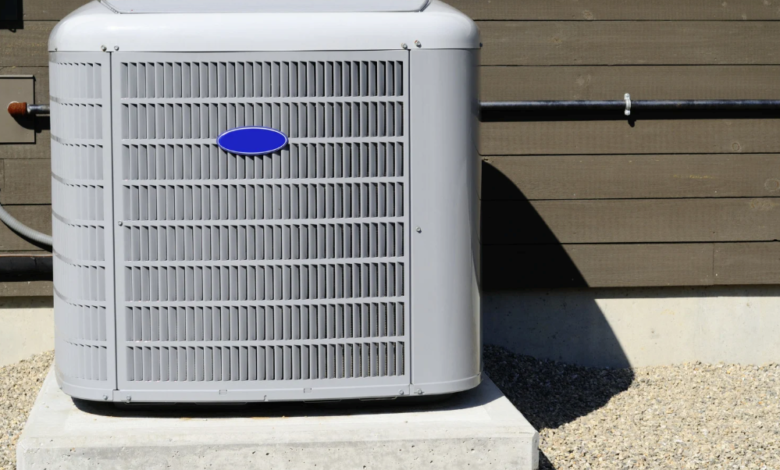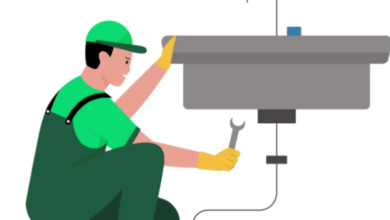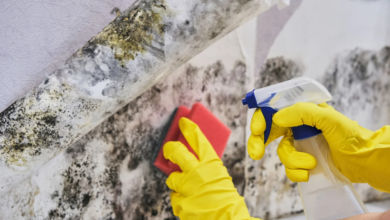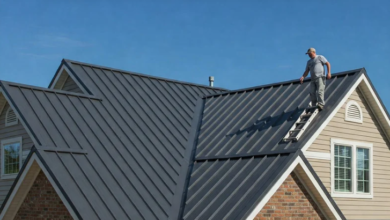Common HVAC Problems and How to Prevent Them Before They Start

HVAC systems work tirelessly to maintain comfortable indoor temperatures year-round, but like any complex mechanical system, they’re susceptible to various issues that can disrupt your comfort and increase energy costs. Understanding common problems and their prevention strategies helps homeowners protect their investment while ensuring reliable operation. Professional services of HVAC in Punta Gorda frequently encounter the same recurring issues that could have been prevented with proper maintenance and early intervention. Proactive maintenance not only extends system lifespan but also prevents costly emergency repairs during peak heating and cooling seasons. Recognizing warning signs and implementing preventive measures keeps your system running efficiently while maintaining optimal indoor comfort.
Clogged Air Filters and Restricted Airflow
Dirty air filters represent the most common cause of HVAC Los Angeles problems, yet they’re also the easiest to prevent. When filters become saturated with dust, pet hair, and debris, they restrict airflow throughout the system, forcing components to work harder while delivering less comfort. This restriction causes the evaporator coil to freeze, reduces energy efficiency, and puts excessive strain on the blower motor.
Professional maintenance schedules include regular filter inspections and replacements based on home conditions and filter type. Homes with pets, smokers, or high dust levels require more frequent filter changes than typical residential applications. Quality filters capture contaminants effectively while maintaining proper airflow, but they must be replaced before becoming saturated to prevent system damage.
See also: Why Professional AC Installation is Crucial for Long-Term System Efficiency
Refrigerant Leaks and Cooling Issues
Refrigerant leaks develop gradually through normal wear, vibration, and corrosion that affect copper lines and connection points. These leaks reduce system cooling capacity while forcing the compressor to work harder, potentially leading to complete system failure. Low refrigerant levels also cause ice formation on evaporator coils, further reducing cooling efficiency and airflow.
Professional leak detection and repair services identify problems before they cause major damage. Annual inspections include refrigerant level checks and visual examinations of refrigerant lines for signs of corrosion or damage. Understanding how to make your HVAC more energy efficient includes maintaining proper refrigerant levels through professional service and prompt leak repairs.
Electrical Component Failures
HVAC systems rely on numerous electrical components, including contactors, capacitors, and control boards, that can fail due to power surges, moisture exposure, or normal aging. These failures often occur during peak demand periods when systems work hardest, leaving homeowners without heating or cooling when they need it most. Electrical issues also create safety hazards that require immediate professional attention.
Preventive electrical maintenance includes cleaning connections, testing component operation, and replacing aging parts before they fail. Professional technicians use specialized testing equipment to identify components approaching failure, allowing for scheduled replacement during routine maintenance visits rather than emergency service calls.
Thermostat Malfunctions and Control Issues
Modern programmable and smart thermostats offer enhanced comfort and energy savings, but they also introduce complexity that can lead to operational problems. Incorrect programming, dead batteries, and calibration issues cause temperature fluctuations and inefficient operation that waste energy while reducing comfort levels.
Professional thermostat installation and programming ensure optimal system operation while maximizing energy savings potential. Regular battery replacement and periodic calibration checks maintain accurate temperature control and prevent system cycling problems that increase wear on mechanical components.
Ductwork Problems and Air Distribution Issues
Leaky or damaged ductwork allows conditioned air to escape into unconditioned spaces, reducing system efficiency while creating hot and cold spots throughout the home. Poorly sealed connections, damaged insulation, and crushed ducts force systems to work harder while failing to maintain consistent temperatures in all living areas.
Professional duct sealing and insulation services improve system efficiency while ensuring even temperature distribution. Regular ductwork inspections identify damage before it becomes severe, allowing for targeted repairs that restore proper airflow and system performance.
Drain Line Clogs and Moisture Issues
Air conditioning systems remove moisture from indoor air through condensation that drains away through dedicated drain lines. These lines can become clogged with algae, mold, and debris, causing water backup that damages equipment and creates indoor air quality problems. Clogged drains also trigger safety switches that shut down the system to prevent water damage.
Professional drain line cleaning and maintenance prevent clogs while ensuring proper moisture removal. Regular inspections identify developing problems before they cause system shutdowns or water damage to surrounding areas.
Conclusion
Proactive HVAC maintenance prevents the most common system problems while extending equipment lifespan and maintaining optimal performance. Professional maintenance services identify potential issues before they become costly repairs, ensuring reliable operation throughout demanding seasons. Regular filter replacement, professional inspections, and prompt attention to warning signs protect your investment while maintaining comfortable indoor environments that support your family’s health and well-being.





